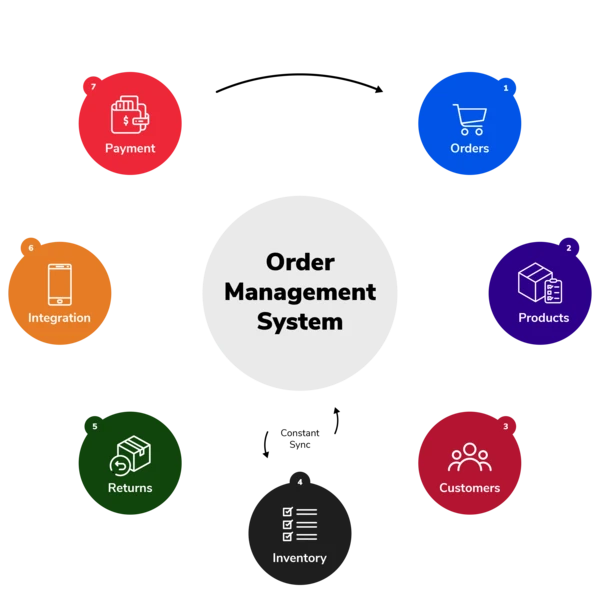What is Work Order Management?
Work order management generates, assigns, monitors, and finalizes tasks related to a company’s on-site service activities. Companies can boost productivity, lower operational expenses, and increase customer satisfaction through effective work order management. Today’s sophisticated field service management solution can significantly streamline these processes in today’s digital age.
Instead of relying on outdated manual methods, a robust field service management solution ensures real-time updates and seamless communication between teams. This integration is crucial for maintaining operational efficiency, especially for companies dealing with numerous complex field tasks daily. Effective work order management also encompasses the ability to analyze and refine processes, leading to continuous improvement and better service delivery.
Benefits of Streamlined Work Order Management
Implementing streamlined work order management processes can offer numerous advantages that directly impact the operational success and customer satisfaction of field service companies:
- Increased operational efficiency: Automation reduces the time and effort required to handle work orders. Automated systems minimize the need for manual entry and reduce errors, ensuring tasks are completed more quickly and accurately.
- Better resource allocation: Real-time tracking helps optimize resource allocation to the required tasks. Field managers can allocate the right personnel and equipment to functions based on availability and proximity, improving response times and reducing travel costs.
- Enhanced customer satisfaction: Keeping customers informed with regular updates improves their experience by keeping them updated. Giving clients immediate updates on the progress of their service inquiries can significantly enhance their satisfaction and confidence in the company.
- Reduced operational costs: Effective procedures cut down on unnecessary expenses, resulting in lower overall expenditures. Businesses can potentially reduce costs and boost profits through efficient resource management and reducing periods of inactivity.
Common Challenges
Despite the benefits, companies often need help managing their work orders effectively. These challenges include:
- Miscommunication: Lack of clear communication often leads to errors and delays. Field staff may not receive timely updates or instructions, causing confusion and inefficiencies.
- Lack of real-time visibility: With real-time tracking, monitoring the status of field operations is challenging. Managers may need help keeping track of task progress and the location of field personnel.
- Manual processes: Manual methods are time-consuming and prone to errors. Paper-based systems and spreadsheets can lead to data entry mistakes and lost information, hindering productivity.
- Difficulty tracking field personnel: With proper tools, tracking field staff’s exact locations and progress can be manageable. However, this lack of visibility can result in inefficient routing and scheduling.
According to research, just miscommunication can result in substantial operational inefficiencies and higher expenses. The report highlights the significance of utilizing effective communication tools and strategies to address these challenges and enhance performance.
Tools and Software Solutions
Multiple tools and software solutions have been created to improve the efficiency of work order management. These include:
- Real-time tracking systems: These systems provide live updates on the status of field operations. They enable managers to monitor progress, assign tasks dynamically, and respond to issues as they arise, ensuring smooth and efficient operations.
- Automated scheduling software: This software automates task scheduling, ensuring optimal resource use. Automated scheduling can reduce the time spent on planning and increase the accuracy of task assignments, leading to more effective resource management.
- Mobile applications: Mobile apps enable field staff to receive updates and report their status. These apps allow field workers to access job details, update work statuses, and communicate with the office in real-time, improving coordination and efficiency.
Implementing such solutions can significantly mitigate common challenges, enhancing overall operational efficiency for field service companies. Integrating these tools enables better decision-making, reduces downtime, and improves the quality of service delivery, leading to increased customer satisfaction and competitive advantage.
Best Practices for Efficient Work Order Management
To achieve efficient work order management, companies can follow best practices such as:
- Implementing a unified software solution: A centralized system ensures all operations are managed seamlessly from one platform. This integration eliminates data silos and reduces the complexity of managing multiple systems.
- Ensuring real-time communication: Use tools that enable instant communication between office staff and field workers. Real-time communication tools help quickly address issues, share updates, and coordinate tasks more effectively.
- Regular training and development for field staff: Ongoing training leads to improved task performance. Training programs have the potential to improve the skills and knowledge of field staff, leading to more efficient and effective performance of their duties.
- Continuous monitoring and feedback systems: Continuous monitoring aids in the detection and timely resolution of problems. Insights gained from feedback given by field staff and customers can help identify areas in need of improvement, leading to continuous enhancement of work order management processes.
Real-World Examples
Several companies have successfully implemented work order management systems with remarkable results. By adopting modern management practices and tools, the company was able to streamline its operations, improve resource allocation, and enhance customer satisfaction. Such examples showcase the tangible benefits of adopting efficient management practices. Companies that invest in advanced work order management solutions can significantly improve their operational performance, leading to better service delivery and increased customer loyalty.
Future Trends in Work Order Management
The future of work order management lies in automation and AI-driven solutions. Advances in technology like IoT and predictive maintenance are poised to transform the way field service companies handle their operations. For instance, predictive maintenance utilizes data analysis to predict possible equipment malfunctions, enabling preventive maintenance actions. By staying updated on these trends, companies can stay competitive and keep delivering high-quality service to their customers. The utilization of state-of-the-art technologies will allow for more streamlined and successful management of work orders, leading to additional enhancements in productivity and customer satisfaction. Incorporating AI and machine learning into work order management systems can result in smarter decision-making, precise forecasts, and improved automation. With advancements in technology, field service companies need to adjust and adopt these advancements in order to remain competitive in a fast-evolving industry.
Keep an eye for more news & updates on Timesanalysis.Com!



